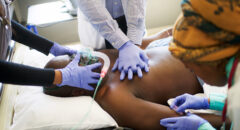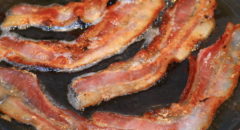 Heart disease is the leading killer in the U.S. Knowing the warning signs of a heart attack and how to respond could save a life. The following guidelines can help you make the right decisions and take the right steps when seconds count.
Heart disease is the leading killer in the U.S. Knowing the warning signs of a heart attack and how to respond could save a life. The following guidelines can help you make the right decisions and take the right steps when seconds count.
Heart Attack Symptoms
These may be symptoms of a heart attack. Not all of these warning signs occur in every attack. Seek immediate medical attention if any of these symptoms occur:
Uncomfortable pressure, fullness, squeezing, or pain in the center of the chest that lasts more than a few minutes or goes away and comes back
Pain spreading to the shoulders, neck, back, and arms
Chest discomfort with lightheadedness, fainting, sweating, nausea, or shortness of breath
Feeling very anxious or very tired
Breaking out in a cold sweat
Men and women may have different symptoms. Women are somewhat more likely than men to have some of the other common symptoms, particularly shortness of breath, nausea/vomiting, and back or jaw pain.
Be Prepared
Take the following emergency actions ahead of time if you or a family member has a heart condition or is at risk of a heart attack:
Know which hospitals in your area provide 24-hour emergency heart care. Tell family and friends where they are.
Keep emergency rescue phone numbers near your phone or save them on your cell phone.
Tell family and friends to call 911 or your local number for emergencies if chest pain lasts more than a few minutes.
There are other causes of chest pain besides a heart attack. However, you should get medical help if you or someone else have the heart attack symptoms described above.
What to Do
If you suspect someone is having a heart attack:
Call 911 or your local number for emergencies. Tell the person who answers where you are and that someone is having a heart attack. Don't hang up until you're told to do so.
Don't let someone who is having symptoms drive themselves to the hospital. If you are having symptoms, don't drive yourself.
While Waiting for Emergency Help to Arrive
Make sure the door to your home is unlocked.
Make sure you have a phone with you.
You may be directed to chew and swallow 1 adult (325 mg) or 4 low-dose (81 mg) aspirin:Do not take aspirin if you are allergic to it, have a known history of bleeding problems, or other reasons for not taking aspirin
Sit in a comfortable chair and wait for help to arrive.
Founded in 1974, the Association of Black Cardiologists, Inc., (ABC) is a nonprofit organization with an international membership of 1,700 health professionals, lay members of the community (Community Health Advocates), corporate members, and institutional members. The ABC is dedicated to eliminating the disparities related to cardiovascular disease in all people of color. Today, the ABC’s public and private partnerships continue to increase our impact in communities across the nation. For more information, visit abcardio.org.








